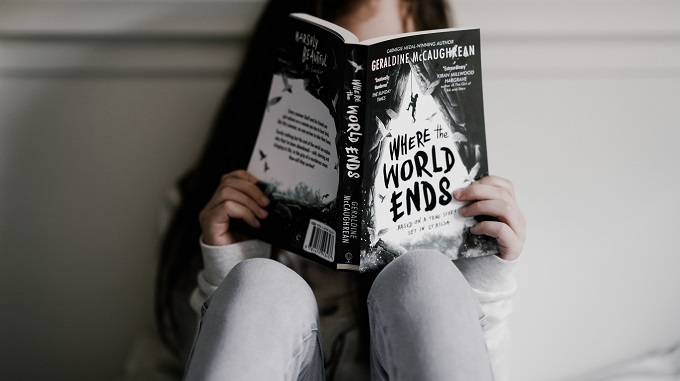
Photo by Annie Spratt
We have all had to try to make sense of the situation as restrictions were brought in to govern and modify our daily routines – restrictions which often required us to make difficult choices or sacrifices. Adjusting to changing rules continues as lockdown starts to ease.
This will not be the last time difficult decisions need to be made. We need to think about what we can do to be better prepared in the future. In particular, we need to equip our children with the skills to respond well to crises and make good moral decisions.
One way we can help children respond constructively to future existential threats is by teaching them philosophy. In the face of uncertainty, critical thinking skills that can assist with ethical decision making and reasoned argumentation are vital. These are particularly necessary for democracy to work well. How can we make and defend good decisions? Philosophy can help.
The best place to start discussing philosophy with children is with their own questions and topics about which they are already curious. Children have been asking questions to do with the pandemic and the restrictions on their freedom. The adults in their lives have had to explain why they can’t go to school or play with their friends, why washing their hands is so important, and why they need to keep two metres away from others.
Answering some questions in particular involves philosophical and ethical considerations: whether everyone should suffer to protect the most vulnerable members of society, and how much of our freedom we should give up to stop people getting sick. Young people may well wonder whether, if some people are ignoring the social distancing rules, why others shouldn’t ignore them too.
Thinking through issues to do with power, autonomy, moral decision making and values is at the heart of philosophy. Philosophy provides tools which can help children and young people to make sense of their experiences and consider the implications of the situation in which we find ourselves.
This is a wonderful opportunity to engage children in age-appropriate philosophical reflection. This may be done with stories, such as child-friendly books about coronavirus.
After reading the story together, children’s own questions are invited and an open, thoughtful question is selected to stimulate dialogue on that topic. The discussion may involve clarifying certain concepts, like care or harm. A concept game could be played, which is a fun way for children to seek definitions of a concept using examples – for instance, of caring or uncaring behaviour. This helps to define key terms and explore associated ethical ideas.
One useful theory we can use to think about our lives under lockdown is philosopher John Stuart Mill’s harm principle. This states that individual freedom should not be restricted unless harm is caused to others. This principle can explain why everyone has their freedom restricted during a pandemic, despite the fact that it is the minority of people who are most adversely affected. It takes into account not just economic values, but ethical values as well.
Additionally, we may apply the ethics of care. This approach invites us to act upon a caring or compassionate response. It asks us to consider how we can show kindness to others and reinforce a sense of community and belonging within society. Children are familiar with concepts such as care, harm, justice and fairness – topics which are well researched by philosophers.
Clear thinking involves carefully assessing a situation and logically progressing from a reasonable starting point – a premise – to a sound conclusion. Making an informed decision involves considering various options.
It is not easy to weigh up complex factors when dealing with difficult circumstances. However, philosophy can help us. The study of philosophy pits ideas against each other in order to identify their strengths and weaknesses.
But it is not just arguing for the sake of scoring points that matters. There is also an idea called virtuous adverseriality that encourages truth seeking while also being mindful of being inclusive, compassionate and respectful. We want young people to learn to be reasonable, but we also want them to be ethical. It is important we encourage them to adopt different perspectives, not simply assume one way of looking at the world.
In the classroom, teaching philosophy to young people may aim at discovering shared meaning through discussion, with students building upon the ideas of others and seeking to understand different points of view. When taught in this way, philosophy can be collaborative, not solely competitive.
With the possibility of future disruptions in the form of new or ongoing pandemics, severe weather and the effects of global warming, political upheaval or economic instability, all school children would benefit from studying philosophy.
Learning philosophy, particularly reasoned argumentation, dialogue and respectful disagreement, equips us with vital critical thinking skills. These skills will support the problem solving and ethical decision making required during uncertain times.
The much-delayed English draft curriculum is now out for consultation, generating discussion from teachers.
Research from AUT demonstrates arts, culture and recreation have positive impacts on all aspects of…
How effective has the school phone ban been in achieving its aims? Researchers from the…
School camps and excursions deliver hands on learning experiences, helping to consolidate classroom learning.
Innovations in AV technologies present new opportunities to engage with students. We look at how…
A new report from the University of Auckland’s Our Voices Project asks young people what…
This website uses cookies.